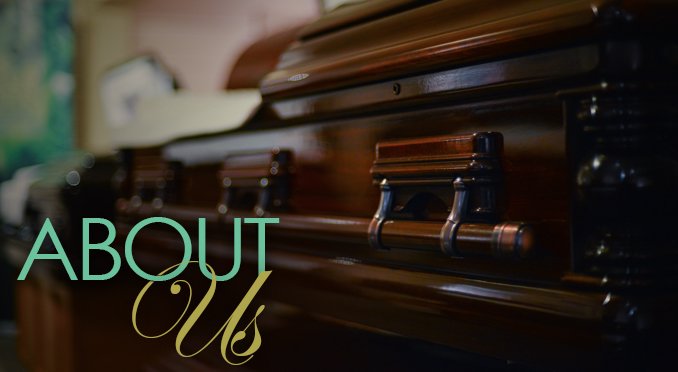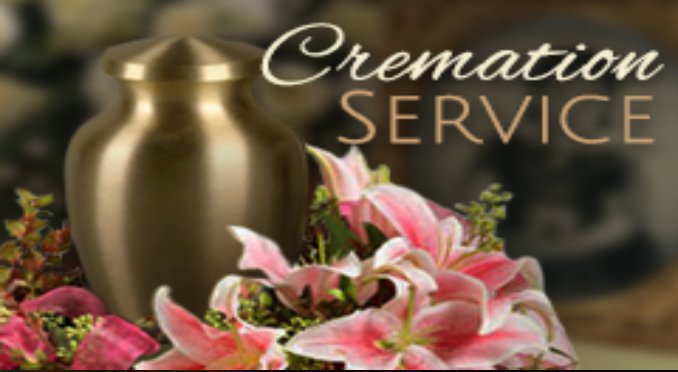What is cremation?
Cremation is the process of applying heat to the body to reduce it to its basic elements, which are referred to as cremated remains. Cremated remains have neither the appearance nor the chemical properties of ashes, they are, in fact, bone fragments. These fragments are then mechanically pulverized into minute particles and placed in a container. Only one person is cremated at a time.
Is a casket necessary for cremation?
The body must be enclosed in a casket or container made of wood or other combustible material It must be strong enough to assure the health and safety of those who must come in contact with it. The casket should meet minimum requirements for proper respect and consideration, and should be composed of a suitable material which is environmentally safe.
Is it possible to put personal items in the container before cremation?
Our advise is to to place jewellry or other small items in the urn with cremated remains after the cremation is complete. Items may be placed in the container or casket prior to cremation providing these items pose no health and/or safety risk during cremation and are composed of materials that are environmentally safe. Personal items are not recoverable after the cremation.
What if someone dies at night or during a holiday?
We are available 24 hours a day, seven days a week. All you need to do is place a call to us at (519) 672-0459. If a death has occurred at home and you request immediate assistance, a funeral director will be there within the hour. You may wish to spend a short time with the person that has died to say good bye. Let us know and we will attend when your ready for us.
Are there any regulations on what cremated remains are placed in if they are to be buried?
There are no regulations. When no urn is purchased, the cremated remains are returned in a black plastic box that is acceptable for burial if you do not choose an urn .
Can you bury cremated remains on an existing grave space?
Every cemetery has its own by-laws. Contact the cemetery office for details.
Isn't cremation an end in itself?
Cremation is not a disposition. It is a method of preparing the remains for memorialization. Cremated remains can be scattered, interred in a plot or a niche in a columbarium in a cemetery.
What about scattering cremated remains?
Scattering cremated remains in Ontario is allowed on your own property or crown land. However, keep in mind that a favorite place today may change ownership and development may take place. A dedicated place within a cemetery assures the site chosen will not be developed for other use at some future time. A scattering garden is available in Mount Pleasant or Woodland Cemetery.
Are more people choosing cremation today?
Yes. In recent years cremation has been increasing steadily in both the United States and Canada. Cremation is accepted by followers of most religious faiths today. Some people view cremation as a way of simplifying their funeral process and thus choose cremation to make their services as simple as possible.Yet another environmental concern, of sorts, is that traditional burial takes up a great deal of space.
How does the cost of cremation compare with burial or entombment?
The basic charge for cremation is somewhat less than traditional burial. However, with so many service options available to the family in the funeral services and in the mode of disposition, it’s not possible to make an accurate comparison. You have the option to select as much or as little as you wish. With cremation you have more options.
What type of service should I have?
If no pre-arrangements have been made, the type of service is entirely up to you, but it is best to consider what the deceased may have wanted. Services may be held at a funeral home, place of worship, at home, legion or service club hall or golf club. There are a wealth of different services, ranging from traditional religious or military services, to something a little more unique like a secular celebration of life service. We would be happy to provide a list of locations available in London.
Do we need to have an obituary notice and what is included in one?
An obituary lets the public know that a death has occurred, and provides them with information about the service. Many today choose to publish an obituary to inform the public through social media instead of a paper notice. Obituaries generally include the deceased’s full name, age, city, and date of birth, as well as the city they were living in when they died. It also includes the name of the deceased’s spouse, along with the names of anyone else significant in their lives, such as parents, children, or grandchildren. You might also wish to include a short sentiment on the life and legacy of the deceased. An online obituary or memorial website offers you the chance to add a lot more about the deceased.
Is it advisable to arrange for cremation in advance?
Yes. Discuss your wishes and the needs to your family. It will make the decision making process easier at the time of death. Pre-arranging is a free, convenient service that we offer. If you wish to prepay, we have many guaranteed pre-payment options to freeze the cost.
Certain steps you should take in advance:
1. Make your wishes known to your family. Your Will is usually not read until after the funeral so don’t leave important funeral related information only in your will.
2. Consult with London Cremation Services about arrangements than can be made in advance.
Who are funeral directors and what do they do?
Funeral directors are in charge of all the logistics following a death. They complete all the necessary paperwork, make arrangements for the transportation of the body, and put into action the choices made by the family in regards to the funeral service and the final resting place of the body. Beyond all of this, funeral directors are there to provide emotional support and personal guidance in the wake of a loss.
What happens if the death occurs in the middle of the night or on the weekend?
We are here to help. Funeral directors are available 24 hours a day, 7 days a week, and 365 days a year.
What is embalming and what purpose does it serve?
Embalming sanitizes and preserves the body. It also slows down the decomposition process and enhances the appearance of a body impacted by a traumatic death or illness. Embalming gives time to the family of the deceased to arrange a service, and allows for the possibility of an open-casket viewing. This is not offered at London Cremation Services.
What do I do if I am not satisfied with the way a funeral was handled?
In Canada, funeral services are regulated provincially and this information can be found on the Canadian Consumer Information website at www.consumerinformation.ca.



